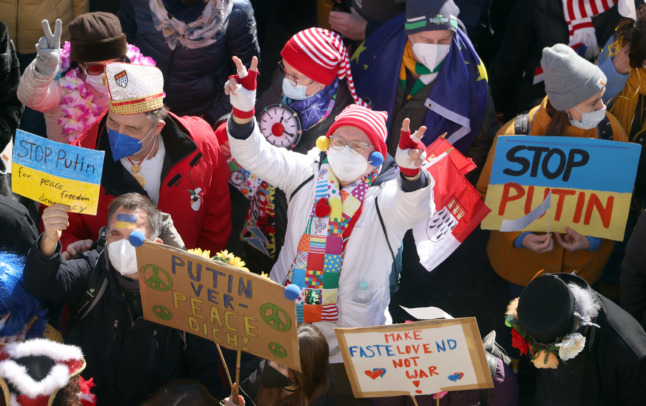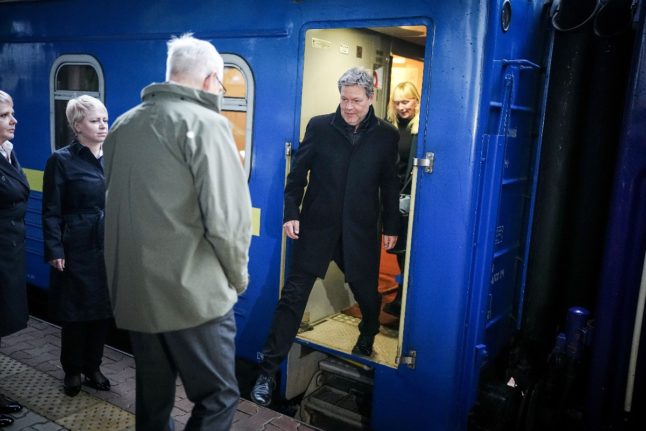Up to 250,000 people, many waving Ukrainian flags, marched in the western German city Cologne, turning the traditional Rose Monday carnival celebration into a protest against Russia’s invasion of Ukraine.
The traditional carnival street festival had been called off this year because of the coronavirus pandemic. But organisers decided instead to hold a peace march on Monday in solidarity with Ukraine.
READ ALSO: How people in Germany can support Ukraine
Police said at the peak of the march, 250,000 people were present. A minute’s silence was held during the event, which organisers said aimed at sending a “strong signal against the fighting in Ukraine.”
Henrik Wuest, state premier of North Rhine-Westphalia, was also at the march with a badge in Ukrainian blue and yellow colours.
“The people of Cologne would have liked to celebrate Rose Monday again after two years of pandemic, instead they are showing solidarity and standing up for peace in Ukraine,” he wrote on Twitter.
In the tradition of Rose Monday, floats mocking political leaders were also on show at the march, with Russian President Vladimir Putin a key target of mockery this year.
One featured Putin as a puppet master manipulating Belarusian President Alexander Lukashenko, complete with dracula fangs.
Another float with a peace dove speared by a blood-spattered Russian flag was also prominent at the parade.
The Cologne march came a day after hundreds of thousands of people across Europe took to the streets to condemn Putin’s invasion of Ukraine. In Berlin alone, police said turnout was at least 100,000.
READ ALSO: IN PICTURES: Over 100,000 march for Ukraine in German capital



 Please whitelist us to continue reading.
Please whitelist us to continue reading.
Member comments